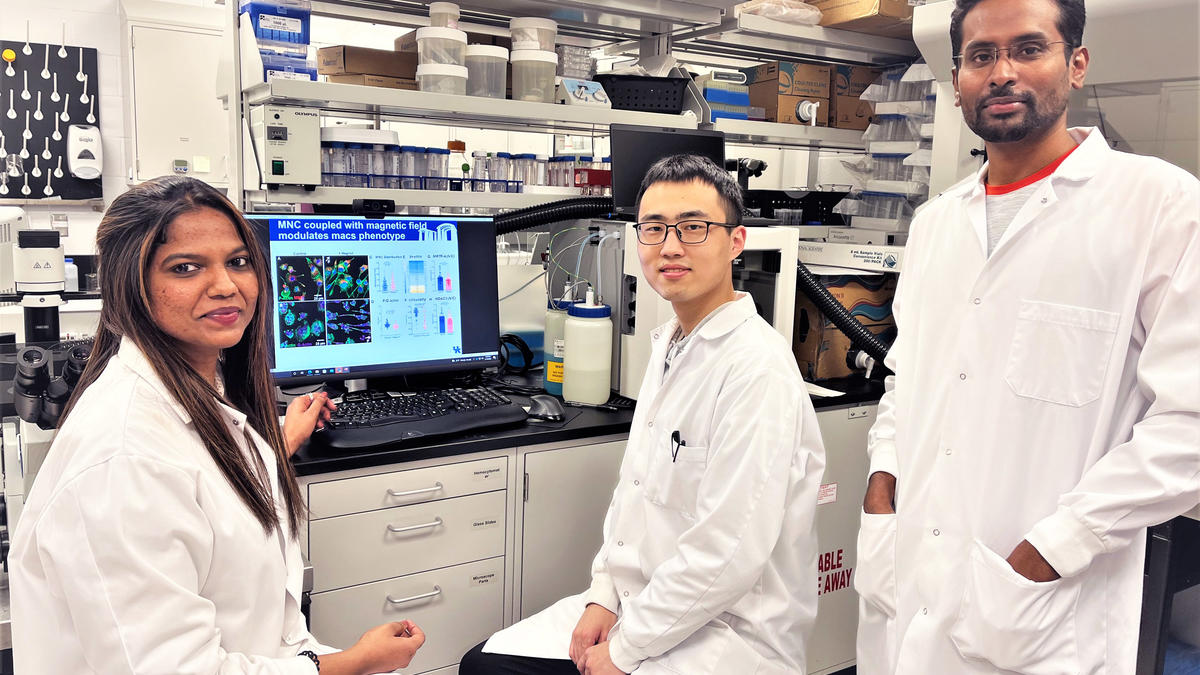Image caption: Dr. Annamalai (Right) with the graduate students working on the research project.
For this multidisciplinary research project, Annamalai will collaborate with Sheng Tong, associate professor in the UK Department of Biomedical Engineering, Ashley Seifert, associate professor in the UK Department of Biology and John Fowlkes, director of the UK Barnstable Brown Diabetes Center, to develop an immunomodulatory platform to reduce the burden of nonunion in patients.
“The future of nanotechnology in medicine is potentially boundless, and I am excited to work with Dr. Annamalai to develop a potent immunomodulatory therapy that will be a paradigm shift in orthopedic clinical care,” says Tong.
Annamalai’s research program is broadly focused on elucidating the mechanobiology of immune cells and immunomodulatory cells and developing engineered strategies to harness the body’s natural healing responses.
This grant is the second NIH grant acquired by Annamalai’s team for a total of $1,160,000 to support his efforts to promote excellence in treating and preventing musculoskeletal injuries.
“Receiving this award is a recognition of the competitiveness of the research program being developed by Annamalai at UK. The team of collaborators will provide multidisciplinary expertise to address the complex scientific and clinical problem that Dr. Annamali’s work focuses on,” said Abhijit Patwardhan, interim chair of the Department of Biomedical Engineering.
Congratulations to Dr. Annamalai!
This research is supported by the National Institute of Health (NIH) under Grant Number R21AR078447. The content is solely the responsibility of the authors and does not necessarily represent the official views of the NIH.
